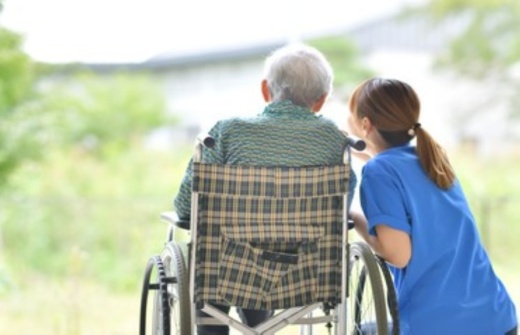So far, they have been successful, Executive Director Raquel Medina said, and no cases have been confirmed among staff or residents.
“Everybody is coming together and doing their best and taking things one day at a time," she said.
Across the 23 Cy-Fair area facilities that have been self-reporting data to the Texas Department of State Health Services, only three have reported active cases, and only one of those—Atria Cy-Fair—had active cases among residents.
Despite the low cases counts, the pandemic has still come with a large price tag for assisted living facilities, said Kevin Warren, President of the Texas Health Care Association, a public policy group that advocates on behalf of long-term health care providers.
Expenses are increasing because of overtime pay, the cost of personal protective equipment and the overall effort to maintain staff, which was a premium before COVID-19. At the same time, revenues are down as admissions have dropped, Warren said. Not only do local public health orders restrict admissions for facilities that have had COVID-19 cases, but people are also less willing to keep family members in these communities, he said.
“Families are concerned,” Warren said. “We’ve been on visitation restrictions since March, so families don’t want to admit to a facility and then turn around and not be able to visit them.”
As the toll on these facilities increases, a movement has developed at the national level calling on U.S. Congress to provide relief funding for assisted living facilities in the next stimulus package, which was still being negotiated as of late July. Although nursing homes have gotten some relief in past packages, including a temporary rate increase to Medicaid payments, assisted living has so far been left out.
At Eden Memory Care, Medina said the amount of money she spends on housekeeping supplies has tripled since the pandemic began due the spending on disinfectant wipes and sprays, soaps and sanitizers. In addition to cleaning the entire building more than once every two hours, Medina said she also supplies staff members with sanitary equipment to take home with them.
She argued that assisted living facilities deserve some relief in the next stimulus to help pay for expenses that normally are not included in budgetary planning.
"If this [pandemic] goes on for a long time, it could put us in jeopardy," she said. "But no matter what the expense is, we'll do what we need to do to keep everyone safe. We're not going to take any shortcuts on the protocols in place."
Nursing home cases more than doubled in the Greater Houston area over the course of July, according to state data, from 1,766 cases on July 1 to 3,889 on July 28. Over that same time, cases in assisted living facilities grew from 255 to 628.
The state announced a voluntary testing effort in July for assisted living facilities for both residents and staff, which could cause case counts to rise in the Houston area, Warren said.
“We know providers across the state are taking the state up on those initiatives. At the same time we know of providers who are doing their own testing,” Warren said. “They are spending their own resources to do the testing because they recognize the importance.”
Medina said she took advantage of the state-funded testing, which took place at Eden Memory Care on July 26. She said she was grateful for the state's efforts to provide tests, as well as for the Southeast Texas Regional Advisory Council, which has helped provide some personal protective equipment.
"[Testing] is expensive if you do it on your own," Medina said.
Like many industries in the age of COVID-19, the future is hard to predict, Warren said. Even if stimulus money is provided to assisted living facilities, it may not be enough, depending on the scope of the relief and how long the pandemic lasts.
“If people are still reluctant to have their loved ones go into a facility, yet the testing and supplies requirements continue, that will post a significant risk of closures and long-term financial ramifications for these providers,” he said.
One bright side of the pandemic is that is shined a light on how underfunded the long-term care industry is, a problem Warren said existed long before the pandemic.
“We’ve got to look at this from a state policy perspective in terms of what we are doing to ensure long-term care providers have the necessary resources and financial support to care for the men and women living in these facilities,” he said.





